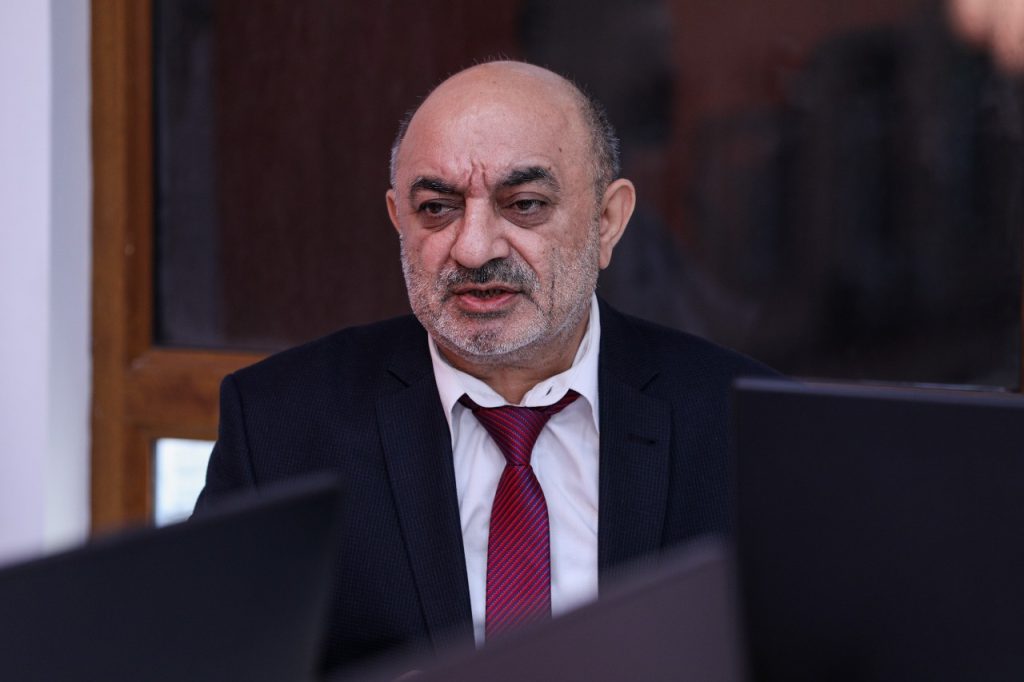|
|
TODAY.AZ / Politics
Foreign Ministry's travel ban to Iran is economic blow to country's tourism sector - expert
06 June 2023 [08:00] - TODAY.AZ

By Azernews
Lately, Iran's mullah regime has again started to carry out malicious acts such as provocation, blackmail and sabotage against Azerbaijani Turks. Even the theocratic regime, which is afraid of its own collapse, denigrates any students, ordinary citizens, tourists, etc., arrests them under various pretexts, and makes unjust decisions about them. All this is an example of growing hatred towards the Turkish nation in Iran.
Note that the recent news about the disappearance and subsequent arrest of Azerbaijani national Farid Safarli in Iran caused the Azerbaijani government to strengthen precautionary measures. Thus, the Ministry of Foreign Affairs of Azerbaijan not only prohibits Azerbaijani citizens from visiting Iran for security reasons, but also warned our compatriots who want to travel from other countries.
Nevertheless, the new decision of the Ministry of Foreign Affairs of Azerbaijan is also taken into account for our Azerbaijani compatriots living in Iran. The question arises, what will be the fate of the southern Azerbaijanis after the new decision? Can such an approach of Iran endanger the lives of our compatriots?

"The pressure exerted by the Iranian authorities on the speeches of the Azerbaijani Turks regarding the provision of their national rights never weakens. This announcement by the Foreign Ministry is an economic blow to Iran's tourism sector," political analyst, head of the Middle East think tank Sadraddin Soltan said this to Azernews, while commenting on regime's rising pressure on Azerbaijani Turks. He added that Azerbaijani President Ilham Aliyev has repeatedly stated that the rights of Azerbaijani Turks to speak in their native language in Iran are being violated and faced severe assimilation. Iran, on the other hand, expresses its anger towards the Turks in the world and Azerbaijan in political matters.
"Although Iran does not openly state this, it shows it as an element of pressure in its behavior and attitude. For example, when Azerbaijanis demand their rights, Iran accuses them of spying on neighboring countries. If Iran openly declares that its actions are directed only against Azerbaijan, it will be a kind of action to promote Azerbaijan Republic. This will give spirit and confidence to the Turks worldwide," Sadraddin Soltan added.
Apart from its national and ethnic politics, Iran is also a country that tends to pursue a multifaceted policy. However, it is not a secret that this is not a feature arising from his good intentions. On the contrary, Iran always carries out this kind of secret expansionist policy in order to create its influence in different parts of the world.
For example, Iran is seeking collective maritime cooperation with a number of countries, mainly with Arab countries such as Saudi Arabia, the United Arab Emirates, Qatar, Bahrain, Iraq, as well as with Pakistan and India. In this regard, the expert stressed that Iranian authorities have recently taken a course towards the normalization of relations with neighboring and non-neighboring Muslim countries.
"Saudi Arabia is the country where Iran has been experiencing the most serious problems in the Middle East for more than 7 years. Iran believes that if it first establishes relations with Saudi Arabia, it will be able to establish relations with other Arab and Muslim countries such as UAE, Egypt, Bahrain and others. The second question is that Saudi Arabia's relations with Israel are not so broad compared to other Arab countries. However, the desire to normalize relations does not mean the formation of any union. Concrete questions must be behind it. Iran must first find a solution to the problems of Yemen (Houthi movement), Lebanon and Syria, which it created with Saudi Arabia," Soltan said.
According to him, due to the risky policy and and because of some insecurity of the regime, no state agrees to invest in its economy. The agreement signed between the two states does not mean the normalization of relations between them.
URL: http://www.today.az/news/politics/235723.html
 Print version
Print version
Connect with us. Get latest news and updates.
See Also
- 27 February 2025 [13:32]
Milli Majlis condemns EU-Armenia Parliamentary Partnership Committee's statement - 27 February 2025 [13:26]
Number of missing Azerbaijani citizens due to Armenia’s aggression updated - 27 February 2025 [12:35]
Pashinyan claims Armenia is ready to simplify railway links with Azerbaijan - 27 February 2025 [12:30]
VP of Heydar Aliyev Foundation discusses environmental cooperation with Bahraini minister - 27 February 2025 [12:04]
Territory of present-day Armenia referred to as Azerbaijan by leaders of various states for centuries - 27 February 2025 [11:47]
UK Parliament MP proposes bill recognizing Khojaly Genocide - 27 February 2025 [11:36]
Used material. It's time for Ruben Vardanyan to understand something about himself - 27 February 2025 [11:11]
Delay, hoping for a miracle: new manipulations from the Armenian Foreign Ministry - 27 February 2025 [10:32]
Global Dialogue Conference in Chicago commemorates Khojaly genocide, calls for justice - 27 February 2025 [10:16]
President Ilham Aliyev sends congratulatory letter to President of Türkiye
Most Popular
 Germany’s elections: Immigration takes center stage in crucial vote
Germany’s elections: Immigration takes center stage in crucial vote
 From Acting to Propaganda: Armenian-origin comedian on EU sanctions list
From Acting to Propaganda: Armenian-origin comedian on EU sanctions list
 Middle Corridor becomes important route for businesses in South Korea and Japan
Middle Corridor becomes important route for businesses in South Korea and Japan
 Bangladesh and Pakistan resume trade after 54 years
Bangladesh and Pakistan resume trade after 54 years
 Hikmet Hajiyev holds high-level talks in Türkiye on strategic cooperation
Hikmet Hajiyev holds high-level talks in Türkiye on strategic cooperation
 Red Cross, smuggling, and Mirzoyan's crocodile Tears
Red Cross, smuggling, and Mirzoyan's crocodile Tears
 Azerbaijani Foreign Minister Jeyhun Bayramov visits Saudi Arabia for talks
Azerbaijani Foreign Minister Jeyhun Bayramov visits Saudi Arabia for talks
